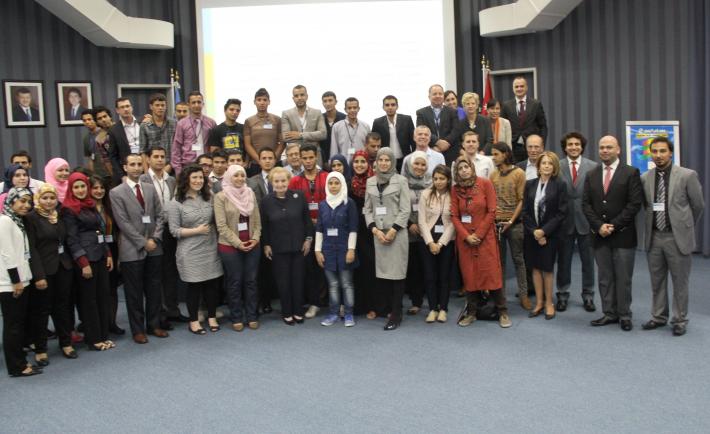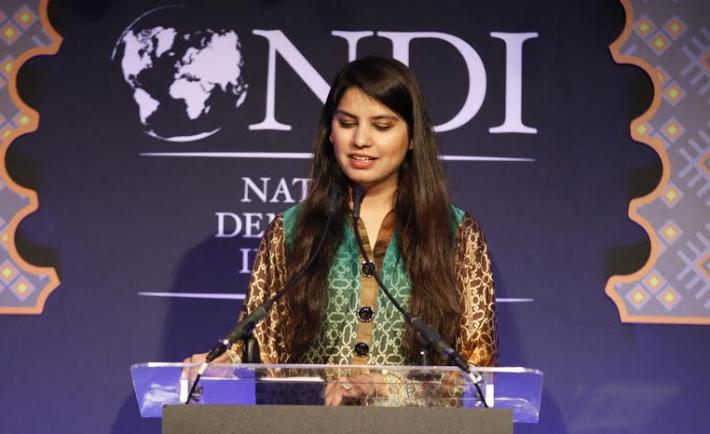In Jordan, NDI is using an innovative program to help young people use democratic methods and community action to become invested in their nation’s future. Through “Ana Usharek” (“I Participate”), university students throughout the country are learning about democratic values and political systems, human rights, non-violent dispute resolution, and civic responsibility.
How does increased youth participation in politics improve a society?
Young Women. Fresh Voices. The Future of Democracy.
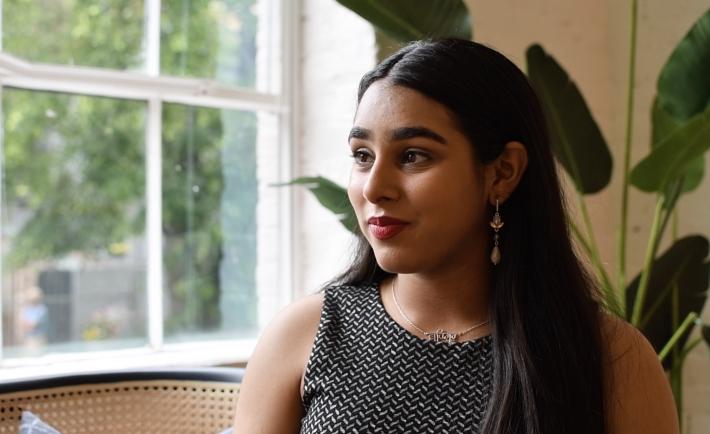
Tarina Ahuja is a high school senior, a political activist and co-founder of the nonprofit Young Khalsa Girls.
The DemWorks Podcast and Video series will extend International Youth Day (August 12) to celebrate and amplify the political engagement of young women and young men throughout the month of August. In this episode, Molly Middlehurst, Senior Program Officer on the Gender, Women and Democracy team at NDI, speaks to the inspirational Tarina Ahuja.
Latin America Fights to Eradicate Violence Against Women in Politics
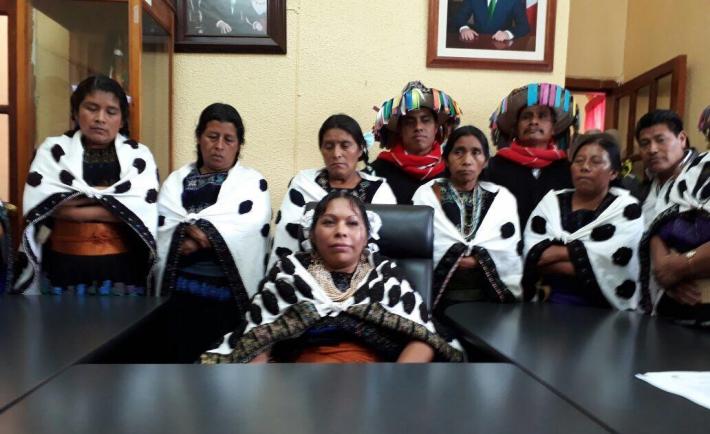
Picture tweeted by Rosa Pérez when she returned to her Municipality Office after the Federal Electoral Court ruled in her favor.
Latin America is the leading region in the world addressing violence against women in politics (VAWP). As a former justice of the Federal Electoral Court in Mexico and as the first woman to be president of that Court, I wish to share my thoughts on the current legal status of the issues in Latin America. I will also provide recommendations on how the campaign can stop this type of violence.
Women’s Political Equality in Pakistan: Not an Impossible Mission
How did I come to understand what has become my mission in life? Well, I come from a social context in Pakistan where, like in all developing countries, women’s vision and committed approach to a practical life goes through tough challenges. It can even start within a woman’s own family. Fortunately, my family stood by my ambition of joining social work as a profession.
Gender-Sensitive Governance: The Missing Ingredient for Resilient Cities
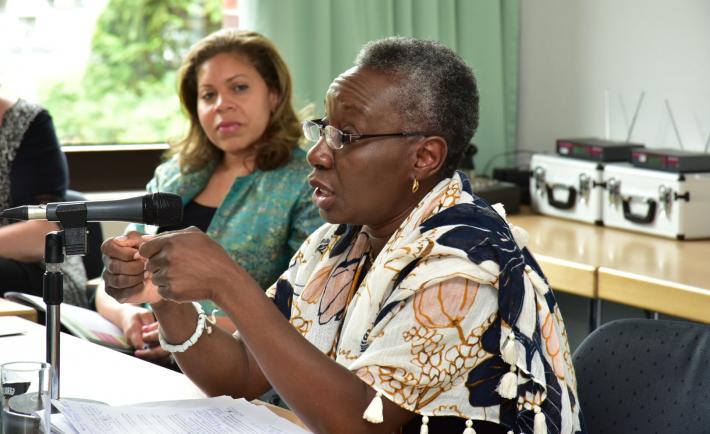
Rockefeller Foundation's Sundaa Bridgett-Jones listens to NDI's Sandra Pepera at ICLEI's Resilient Cities Forum in Bonn in July 2016. Photo Credit: ICLEI-Local Governments for Sustainability
More than half of the world’s population now lives in urban areas. As the forces of globalization rapidly draw more people to urban centers in search of socioeconomic opportunity, we must ask: How do we ensure our cities are safe, sustainable and resilient?
When considering city resiliency, we think immediately of physical necessities: will people have access to clean water, sturdy buildings, safe roads and public transport? Will the city be environmentally sustainable, and be able to weather and recover from natural disasters?
Resilience, though, isn’t only about civil engineering -- it’s also about politics and governance. Inclusive and responsive democracies minimize insecurity and help protect particularly vulnerable community members from potential shocks and stressors. Democracies based on these values guard against instability and conflict and work to address the needs of their populaces, especially in circumstances where the population is diverse and may have competing interests.
Not Just Observation, Guatemala Election Monitoring Opens Doors to Dialogue and Civic Education
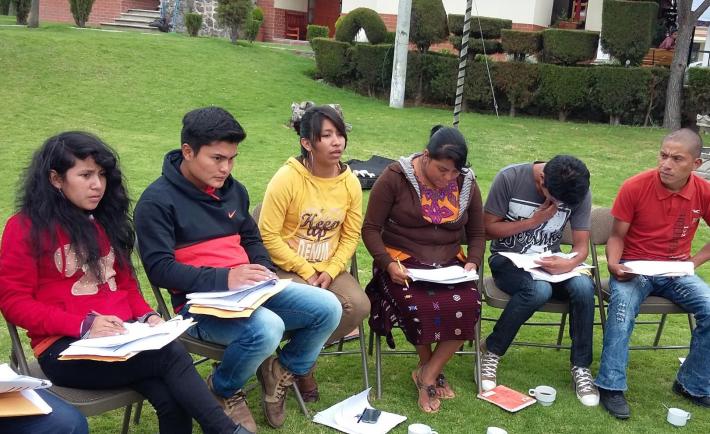
Milvia Roxana Lopez (third from left) speaks during a training for citizen election observers in Guatemala. “Self-confidence was key,” she said, referring to her ability to break through gender-based stereotypes as an election observer documenting incidents of violence and educating voters during last year’s historic elections.
At 25 years old, Milvia Roxana López, an indigenous woman, may be diminutive in size but she exudes a confidence that demands she be heard. As an observer who monitored electoral violence, Milvia met with leaders from her town and surrounding communities to document acts of electoral violence -- not an easy topic to broach in country that has one of the highest homicide rates in the world. “For me, self-confidence was key,” declared Milvia, referring to her role as an election observer. “To many people, it’s not the same when a woman says something as when a man says something. I don’t know where I got the strength, but I did it.”

